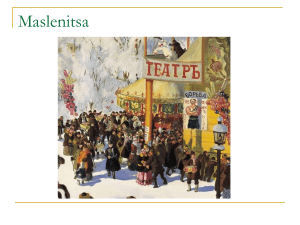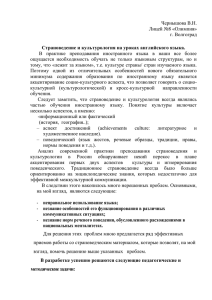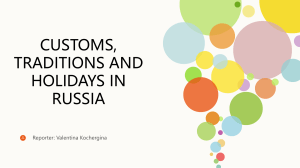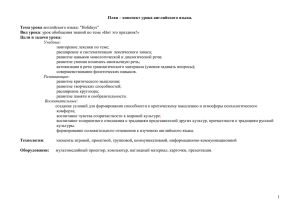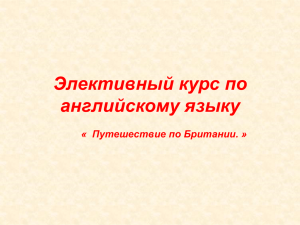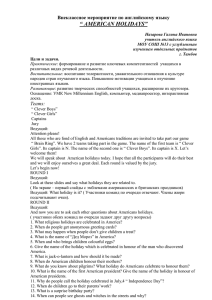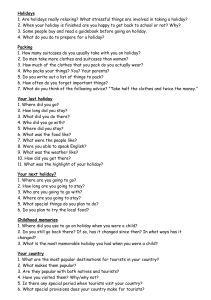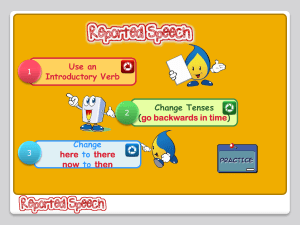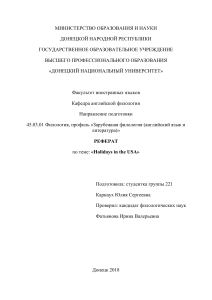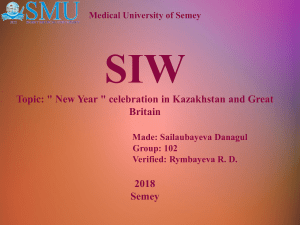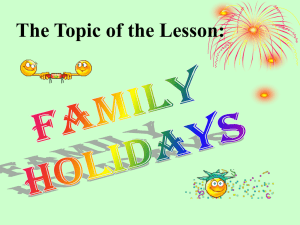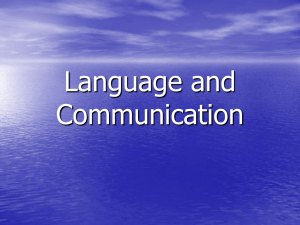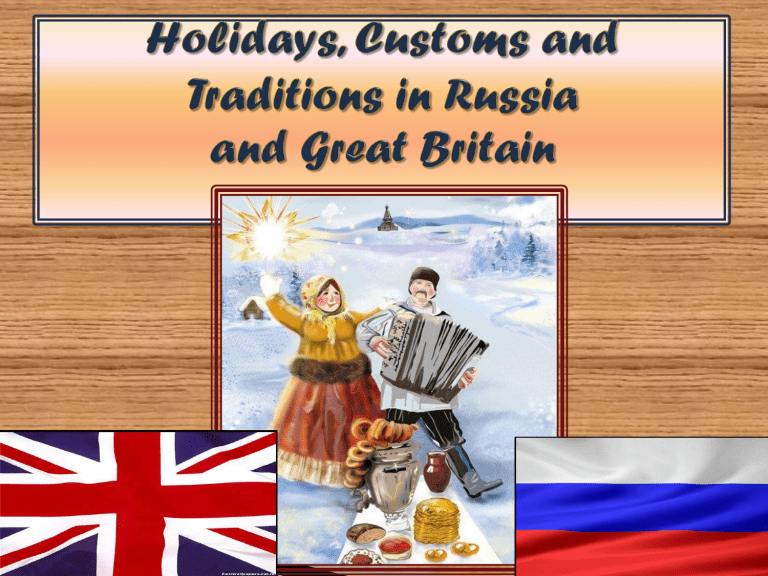
to learn and find out more about traditions and British holidays; to demonstrate what holidays and traditions in Russia and the UK countries have in common and what are the differences between them. Maslenitsa is a jolly and beautiful Russian holiday. This celebration lasts for a week. This is the last week before Great Lent. People cook pancakes served with honey, caviar, fresh cream and butter. This is a very happy week. Everyday there is a special activity. For example, on Tuesday different games are held in the open air. On Wednesday you have to visit your mother-in-law and eat pancakes at her place. On Thursday you can go sledriding. On Sunday a straw effigy symbolizing winter is burnt and people have to ask for forgiveness from all their close relatives and friends. In Britain Pancake Day is more generally connected with relics of the traditional feasting before the fast. British people eat pancakes on Pancake Day in February or March. In some parts of Britain there are pancake races on Pancake Day. People race with a frying pan in one hand. They have to "toss" the pancake, throw it in the air and catch it again in the frying pan . As you can see, the idea behind the holiday is very similar in both countries. However, Russians decided to celebrate for a week instead of a day. Maslenitsa is a very important feast for the Russians, probably because many of them chose to fast after it. Maslenitsa is a much brighter, more interesting and popular holiday in Russian than in the UK. To conclude, I should like to say that each nation should try its best to preserve its authenticity. I think this writing can be used during English classes. It was interesting to research it and I am going to work on it.
